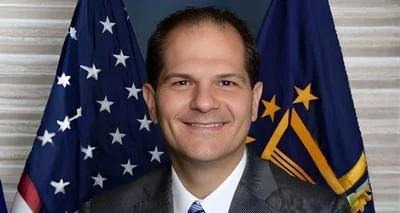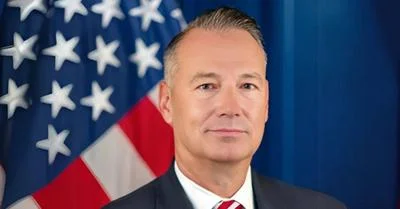Former headquarters of the Chicago Sun-Times. | Wikimedia Commons / Daniel Hartwig
Former headquarters of the Chicago Sun-Times. | Wikimedia Commons / Daniel Hartwig
In response to President Donald Trump's executive order that cuts federal funding to NPR and PBS, the Chicago Sun-Times—owned by NPR affiliate Chicago Public Media—released a statement that, in part, said the loss of $2 million in taxpayer subsidies is a “threat” to “freedom of the press.”
“Chicago Public Media is a nonprofit free from corporate and political influence, dedicated to strengthening the well-being of our communities and democracy through independent local journalism,” the Sun-Times' statement reads.
NPR's "unbiased" journalism claims have been challenged by an array of critics, including former NPR editor Uri Berliner.
In a March 2024 op-ed titled "I’ve Been at NPR for 25 Years. Here’s How We Lost America’s Trust," published in The Free Press, Berliner wrote about his experience and observations at outlet.
“An open-minded spirit no longer exists within NPR, and now, predictably, we don’t have an audience that reflects America,” Berliner wrote. “That wouldn’t be a problem for an openly polemical news outlet serving a niche audience. But for NPR, which purports to consider all things, it’s devastating both for its journalism and its business model.”
Berliner, who was suspended after publication of his criticisms and ultimately left the organization, cited instances such as the handling of the Hunter Biden laptop story and the Russia collusion narrative.
Prior to Trump’s executive order, the Corporation for Public Broadcasting received about $535 million annually from Congress, which it distributed in part to public radio and television stations and other affiliates like the Sun-Times.
“Unlike in 1967, when the CPB was established, today the media landscape is filled with abundant, diverse, and innovative news options,” Trump’s executive order reads. “Government funding of news media in this environment is not only outdated and unnecessary but corrosive to the appearance of journalistic independence."
Trump asserted that public funds should only be used to support media that meet certain standards of fairness and impartiality.
"At the very least, Americans have the right to expect that if their tax dollars fund public broadcasting at all, they fund only fair, accurate, unbiased, and nonpartisan news coverage,” the order reads. “No media outlet has a constitutional right to taxpayer subsidies, and the Government is entitled to determine which categories of activities to subsidize. The CPB’s governing statute reflects principles of impartiality: the CPB may not 'contribute to or otherwise support any political party.'”
The order goes further to say that NPR and PBS have failed to meet these standards.
"The CPB fails to abide by these principles to the extent it subsidizes NPR and PBS. Which viewpoints NPR and PBS promote does not matter,” the order reads. “What does matter is that neither entity presents a fair, accurate, or unbiased portrayal of current events to taxpaying citizens."
The executive order came after a Congressional hearing in which it was revealed that 100% of NPR’s editorial board—87 members—are registered Democrats.
“I would agree with you that number is a concern—if it’s accurate,” NPR CEO Katherine Maher said in comments to Congress.
Maher, who admitted NPR did not pursue pivotal news such as the Hunter Biden laptop story, faced tough questioning during the congressional hearing, where she was confronted about past tweets reflecting controversial left-wing views, including claims about "America’s addiction to white supremacy."
Critics argue that NPR, under Maher’s leadership, is a prime example of media outlets pushing a narrow ideological agenda, with little accountability for past mistakes.
Maher, who is also an executive board member for the parent company of encrypted messaging application Signal, notably ran Wikipedia prior to taking the reins at NPR in March 2024.
While at Wikipedia Maher drew criticism for her opposition to the "free and open" model of editing at the organization calling it a "white male Westernized construct."
Maher's stance on free speech also extended to her views on the First Amendment, which she described as a challenge in combating "misinformation."
The move to defund NPR and PBS has been applauded by many who have long accused the organizations of anti-conservative reporting bias.
The right-leaning Media Research Center (MRC) said the organizations have obviously been out of step with taxpayers, calling PBS and NPR the “TV and radio equivalent to MSNBC.”
“Since PBS and NPR are funded by all the American people, it should reflect the viewpoints of the people, and instead, after Trump was re-elected, both networks have doubled down in their anti-Trump animus,” MRC said in a press release.
MRC’s Dan Schneider also spoke with American’s for Tax Reform (ATR) in a podcast, arguing that taxpayer dollars were being misused to support biased media outlets and highlighting how left-wing agendas are promoted through public broadcasting and platforms like Wikipedia.
“It’s time to stop using taxpayer dollars to fund biased outlets like NPR and PBS,” ATR said in a preview of the podcast.
The Rapid Response 47 X account also shared the news.
“@POTUS just signed an executive order ending the taxpayer subsidization of NPR and PBS—which receive millions from taxpayers to spread radical, woke propaganda disguised as ‘news,’” the group said on X.






 Alerts Sign-up
Alerts Sign-up